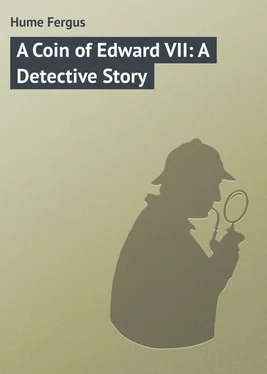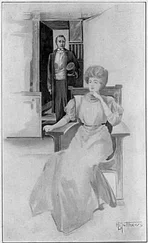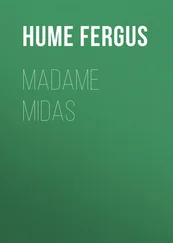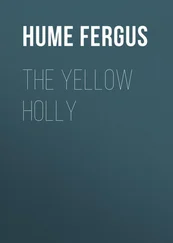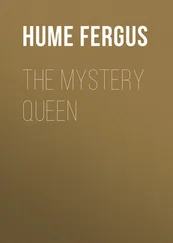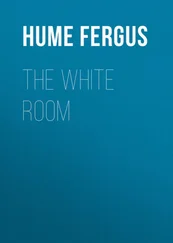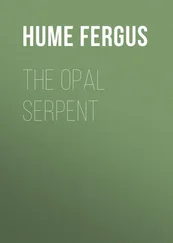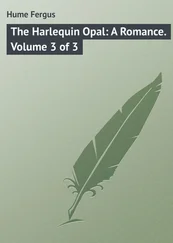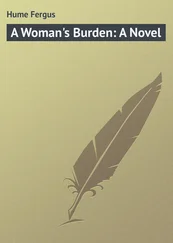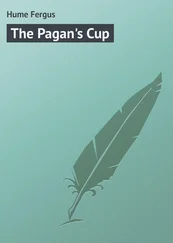Fergus Hume - A Coin of Edward VII - A Detective Story
Здесь есть возможность читать онлайн «Fergus Hume - A Coin of Edward VII - A Detective Story» — ознакомительный отрывок электронной книги совершенно бесплатно, а после прочтения отрывка купить полную версию. В некоторых случаях можно слушать аудио, скачать через торрент в формате fb2 и присутствует краткое содержание. Жанр: Классический детектив, foreign_detective, foreign_prose, foreign_language, на английском языке. Описание произведения, (предисловие) а так же отзывы посетителей доступны на портале библиотеки ЛибКат.
- Название:A Coin of Edward VII: A Detective Story
- Автор:
- Жанр:
- Год:неизвестен
- ISBN:нет данных
- Рейтинг книги:4 / 5. Голосов: 1
-
Избранное:Добавить в избранное
- Отзывы:
-
Ваша оценка:
- 80
- 1
- 2
- 3
- 4
- 5
A Coin of Edward VII: A Detective Story: краткое содержание, описание и аннотация
Предлагаем к чтению аннотацию, описание, краткое содержание или предисловие (зависит от того, что написал сам автор книги «A Coin of Edward VII: A Detective Story»). Если вы не нашли необходимую информацию о книге — напишите в комментариях, мы постараемся отыскать её.
A Coin of Edward VII: A Detective Story — читать онлайн ознакомительный отрывок
Ниже представлен текст книги, разбитый по страницам. Система сохранения места последней прочитанной страницы, позволяет с удобством читать онлайн бесплатно книгу «A Coin of Edward VII: A Detective Story», без необходимости каждый раз заново искать на чём Вы остановились. Поставьте закладку, и сможете в любой момент перейти на страницу, на которой закончили чтение.
Интервал:
Закладка:
Hume Fergus
A Coin of Edward VII: A Detective Story
CHAPTER I
THE CHRISTMAS TREE
Two old ladies sat in the corner of the drawing-room. The younger – a colonial cousin of the elder – was listening eagerly to gossip which dealt with English society in general, and Rickwell society in particular. They presumably assisted in the entertainment of the children already gathered tumultuously round the Christmas tree, provided by Mr. Morley; but Mrs. Parry's budget of scandal was too interesting to permit the relaxing of Mrs. McKail's attention.
"Ah yes," said Mrs. Parry, a hatchet-faced dame with a venomous tongue and a retentive memory, "Morley's fond of children, although he has none of his own."
"But those three pretty little girls?" said Mrs. McKail, who was fat, fair, and considerably over forty.
"Triplets," replied the other, sinking her voice. "The only case of triplets I have met with, but not his children. No, Mrs. Morley was a widow with triplets and money. Morley married her for the last, and had to take the first as part of the bargain. I don't deny but what he does his duty by the three."
Mrs. McKail's keen grey eyes wander to the fat, rosy little man who laughingly struggled amidst a bevy of children, the triplets included. "He seems fond of them," said she, nodding.
"Seems!" emphasised Mrs. Parry shrewdly. "Ha! I don't trust the man. If he were all he seems, would his wife's face wear that expression? No, don't tell me."
Mrs. Morley was a tall, lean, serious woman, dressed in sober grey. She certainly looked careworn, and appeared to participate in the festivities more as a duty than for the sake of amusement. "He is said to be a good husband," observed Mrs. McKail doubtfully. "Are you sure?"
"I'm sure of nothing where men are concerned. I wouldn't trust one of them. Morley is attentive enough to his wife, and he adores the triplets – so he says; but I go by his eye. Orgy is written in that eye. It can pick out a pretty woman, my dear. Oh, his wife doesn't look sick with anxiety for nothing!"
"At any rate, he doesn't seem attentive to that pretty girl over there – the one in black with the young man."
"Girl! She's twenty-five if she's an hour. I believe she paints and puts belladonna in her eyes. I wouldn't have her for my governess. No, she's too artful, though I can't agree with you about her prettiness."
"Is she the governess?"
Mrs. Parry nodded, and the ribbons on her cap curled like Medusa's snakes. "For six months Mrs. Morley has put up with her. She teaches the Tricolor goodness knows what."
"The Tricolor?"
"So we call the triplets. Don't you see one is dressed in red, another in white, and the third in blue? Morley's idea, I believe. As though a man had any right to interest himself in such things. We call them collectively the Tricolor, and Anne Denham is the governess. Pretty? No. Artful? Yes. See how she is trying to fascinate Ware!"
"That handsome young man with the fair moustache and – "
"The same," interrupted Mrs. Parry, too eager to blacken character to give her friend a chance of concluding her sentence. "Giles Ware, of Kingshart – the head of one of our oldest Essex families. He came into the estates two years ago, and has settled down into a country squire after a wild life. But the old Adam is in him, my dear. Look at his smile – and she doesn't seem to mind. Brazen creature!" And Mrs. Parry shuddered virtuously.
The other lady thought that Ware had a most fascinating smile, and was a remarkably handsome young man of the fair Saxon type. He certainly appeared to be much interested in the conversation of Miss Denham. But what young man could resist so beautiful a woman? For in spite of Mrs. Parry's disparagement Anne was a splendidly handsome brunette – "with a temper," added Mrs. McKail mentally, as she eyed the well-suited couple.
Mrs. Parry's tongue still raged like a prairie fire. "And she knows he's engaged," she snorted. "Look at poor Daisy Kent out in the cold, while that woman monopolizes Ware! Ugh!"
"Is Miss Kent engaged to Mr. Ware?"
"For three years they have been engaged – a family arrangement, I understand. The late Kent and the late Ware," explained Mrs. Parry, who always spoke thus politely of men, "were the greatest of friends, which I can well understand, as each was an idiot. However, Ware died first and left his estate to Giles. A few months later Kent died and made Morley the guardian of his daughter Daisy, already contracted to be married to Giles."
"Does he love her?"
"Oh, he's fond of her in a way, and he is anxious to obey the last wish of his father. But it seems to me that he is more in love with that black cat."
"Hush! You will be heard."
Mrs. Parry snorted. "I hope so, and by the cat herself," she said grimly. "I can't bear the woman. If I were Mrs. Morley I'd have her out of the house in ten minutes. Turn her out in the snow to cool her hot blood. What right has she to attract Ware and make him neglect that dear angel over there? See, yonder is Daisy. There's a face, there's charm, there's hair!" finished Mrs. Parry, quite unconscious that she was using the latest London slang. "I call her a lovely creature."
Mrs. McKail did not agree with her venomous cousin. Daisy was a washed-out blonde with large blue eyes and a slack mouth. Under a hot July sky and with a flush of color she would have indeed been pretty; but the cold of winter and the neglect of Giles Ware shrivelled her up. In spite of the warmth of the room, the gaiety of the scene, she looked pinched and older than her years. But there was some sort of character in her face, for Mrs. McKail caught her directing a glance full of hatred at the governess. In spite of her ethereal prettiness, Daisy Kent was a good hater. Mrs. McKail felt sure of that. "And she is much more of the cat type than the other one is," thought the observant lady, too wise to speak openly.
However, Mrs. Parry still continued to destroy a character every time she opened her mouth. She called the rector a Papist; hinted that the doctor's wife was no better than she should be; announced that Morley owed money to his tradesmen, that he had squandered his wife's fortune; and finally wound up by saying that he would spend Daisy Kent's money when he got it. "If it ever does come to her," finished this amiable person.
"Did her father leave her money?" asked Mrs. McKail.
"He!" snapped the other; "my dear, he was as poor as a church mouse, and left Daisy only a hundred a year to live on. That is the one decent thing about Morley. He did take Daisy in, and he does treat her well, though to be sure she is a pretty girl, and, as I say, he has an eye."
"Then where does the fortune come from?"
"Kent was a half-brother who went out to America, and it is rumored that he made a fortune, which he intends to leave to his niece – that's Daisy. But I don't know all the details of this," added Mrs. Parry, rubbing her beaky nose angrily; "I must find out somehow. But here, my dear, those children are stripping the tree. Let us assist. We must give pleasure to the little ones. I have had six of my own, all married," ended the good lady irrelevantly.
She might have added that her four sons and two daughters kept at a safe distance from their respected parent. On occasions she did pay a visit to one or the other, and usually created a disturbance. Yet this spiteful, mischief-making woman read her Bible, thought herself a Christian, and judged others as harshly as she judged herself leniently. Mrs. McKail was stopping with her, therefore could not tell her what she thought of her behavior; but she privately determined to cut short her visit and get away from this disagreeable old creature. In the meantime Mrs. Parry, smiling like the wicked fairy godmother with many teeth, advanced to meddle with the Christmas tree and set the children by the ears. She was a perfect Atê.
Читать дальшеИнтервал:
Закладка:
Похожие книги на «A Coin of Edward VII: A Detective Story»
Представляем Вашему вниманию похожие книги на «A Coin of Edward VII: A Detective Story» списком для выбора. Мы отобрали схожую по названию и смыслу литературу в надежде предоставить читателям больше вариантов отыскать новые, интересные, ещё непрочитанные произведения.
Обсуждение, отзывы о книге «A Coin of Edward VII: A Detective Story» и просто собственные мнения читателей. Оставьте ваши комментарии, напишите, что Вы думаете о произведении, его смысле или главных героях. Укажите что конкретно понравилось, а что нет, и почему Вы так считаете.
